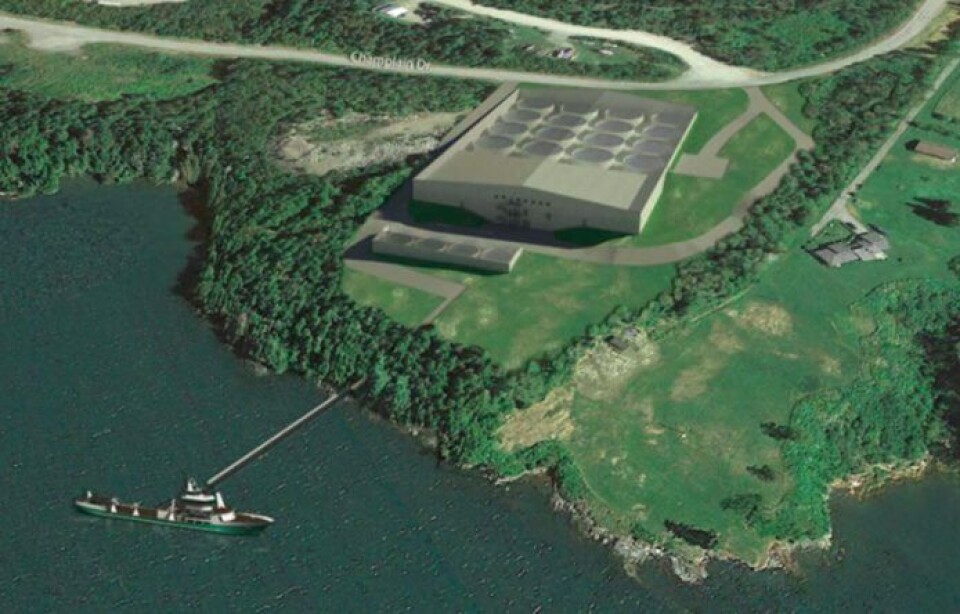
Cooke plans $30m RAS plant for bigger smolts
Cooke Aquaculture is planning to build a $30 million recirculating aquaculture system (RAS) post-smolt facility in Bayside, New Brunswick.
Cooke subsidiary Kelly Cove Salmon met with local politicians and the Chamcook Watershed Landowners’ Association to share plans for the RAS plant.
It will use the most advanced water recirculation technology available on the market. “We believe it will be the first facility to use this technology in Canada,” said Joel Richardson, vice president of public relations for Cooke Aquaculture.
Larger size
He told the Saint Croix Courier that the goal of the $30 million project is to raise salmon to a larger size on land before they are moved to salt water pens. Currently, Cooke’s smolts are moved to pens when they weigh approximately 120 grams. The new facility will help the salmon smolts grow to 300 grams before they are transported to salt water pens.
“Science shows that adding stronger, larger fish to the net pens reduces the chances of fish health issues. This new facility will help to reduce fish handling, reduce time at sea and reduce days to market.”
Expressed support
Cooke representatives met with Eastern Charlotte Waterways, Regional Service Commission, the Town of Saint Andrews and the Atlantic Salmon Federation to show the company’s design plans.
“In fact, they expressed support for the proposed post-smolt facility in the Champlain Industrial Park, particularly given our water requirements are so low compared to the previous Atlantic Salmon Federation flow-through system utilising the Chamcook watershed and that Kelly Cove Salmon would be utilising the most modern recirculating aquaculture system technology available,” said Richardson.
Public meeting
The next phase of the project is in motion. Kelly Cove Salmon is working with the New Brunswick Department of Environment to drill additional wells for testing. The facility will not utilise water from near by Chamcook Lake but from deeper groundwater wells located in the watershed.
“If well testing shows the facility’s water requirements can be met and the project viability proves sound, Kelly Cove Salmon could then register to the province for an Environmental Impact Assessment (EIA). As part of the EIA process, Kelly Cove Salmon would advertise and hold a public meeting for additional community input.
“This new Bayside facility is an important component of our vision for the future to invest locally which could see $198 million spent on upgrade projects and create approximately 258 new, full time jobs in New Brunswick over five years,” said Richardson.























































